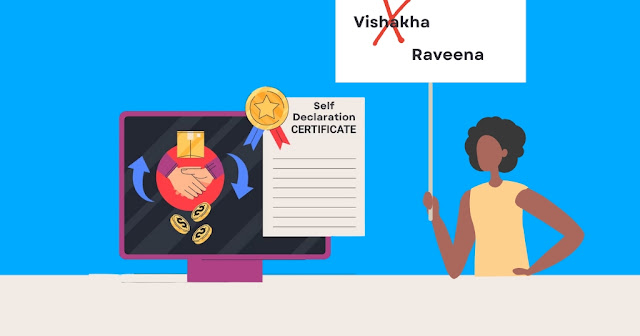Exploring The Role Of Self-Declaration Affidavits In Name Change In India
Changing one's name is a significant decision that individuals may make at various stages of their lives. In India, the process of name change involves several legal procedures, one of which is the submission of a self-declaration affidavit. This document plays a crucial role in the name change procedure and carries legal weight in establishing the new identity. In this blog, we will delve into the details of self-declaration affidavits and their role in facilitating name changes in India.
Understanding The Name Change Process In India
Before exploring the role of self-declaration affidavits, it is essential to understand the overall name change process in India. The process typically involves three main steps: publication of name change in the official gazette, updating the name in relevant documents, and notifying various authorities about the name change. Self-declaration affidavits come into play during the second step, where individuals declare their intention to change their name and provide necessary details.
What Is A Self-Declaration Affidavit?
A self-declaration affidavit is a legal document wherein an individual declares their desire to change their name. It is a sworn statement made under oath before a judicial authority, such as a notary or an executive magistrate. The affidavit contains personal details, including the individual's previous name, new name, and the reason for the name change. It also includes a statement affirming that the individual is not changing their name to evade any legal obligations or deceive others.
Importance And Legality Of Self-Declaration Affidavits
Self-declaration affidavits hold legal significance in the name change process in India. They act as evidence of an individual's intent to change their name and serve as a formal declaration in the eyes of the law. These affidavits are recognized and accepted by various government authorities, including passport offices, educational institutions, and banks, for updating records and issuing new documents with the changed name.
Procedure for Obtaining a Self-Declaration Affidavit: To obtain a self-declaration affidavit, individuals need to follow a specific procedure. The exact process may vary slightly from state to state, but the general steps include:
Drafting the affidavit: The individual must draft the affidavit on non-judicial stamp paper or plain paper, adhering to the prescribed format. The format typically includes personal details, reason for the name change, and the declaration statement.
Visiting a notary or executive magistrate: The individual should visit a notary or an executive magistrate's office to get the affidavit attested. They may need to carry supporting documents, such as identity proof and address proof, for verification.
Swearing the affidavit: The individual must take an oath and sign the affidavit in the presence of the notary or executive magistrate, who then affixes their official seal and signature.
Validity And Implications Of Self-Declaration Affidavits
Self-declaration affidavits are valid legal documents, and the name change becomes effective from the date of signing the affidavit. However, it is important to note that the affidavit alone does not entitle individuals to change their name in all official records. They must still follow the necessary procedures for updating their name in government records, educational certificates, and other relevant documents.
Benefits Of Self-Declaration Affidavits
The use of self-declaration affidavits in the name change process offers several benefits to individuals. Some of the key advantages include:
Simplified procedure: Self-declaration affidavits simplify the name change process by providing a straightforward and standardized method for individuals to declare their intention to change their name.
Wide acceptance: Self-declaration affidavits are widely accepted by government authorities, banks, and educational institutions, making it easier for individuals to update their name in official records.
Cost-effective: Obtaining a self-declaration affidavit is generally more cost-effective compared to other legal processes involved in name changes, such as obtaining a court order.
Limitations And Considerations
While self-declaration affidavits offer a streamlined approach to name changes, there are certain limitations and considerations to keep in mind:
International recognition: In some cases, individuals may face challenges in getting their changed name recognized internationally, especially when dealing with foreign authorities or organizations.
Specific requirements: Different authorities and institutions may have specific requirements for accepting self-declaration affidavits. It is important to check with the relevant authorities regarding their procedures and documentation requirements.
Verification processes: Some authorities may conduct verification processes to ensure the authenticity of the self-declaration affidavit, which may involve cross-checking with the official gazette publication and other documents.
Conclusion
Self-declaration affidavits play a vital role in facilitating name changes in India. They provide individuals with a legal framework to declare their intention to change their name, making the process more accessible and streamlined. While these affidavits simplify the procedure, individuals must still follow the necessary steps to update their name in official records. It is important to understand the specific requirements of different authorities and consider potential limitations when opting for a name change through self-declaration affidavits.
Posted by Samina



